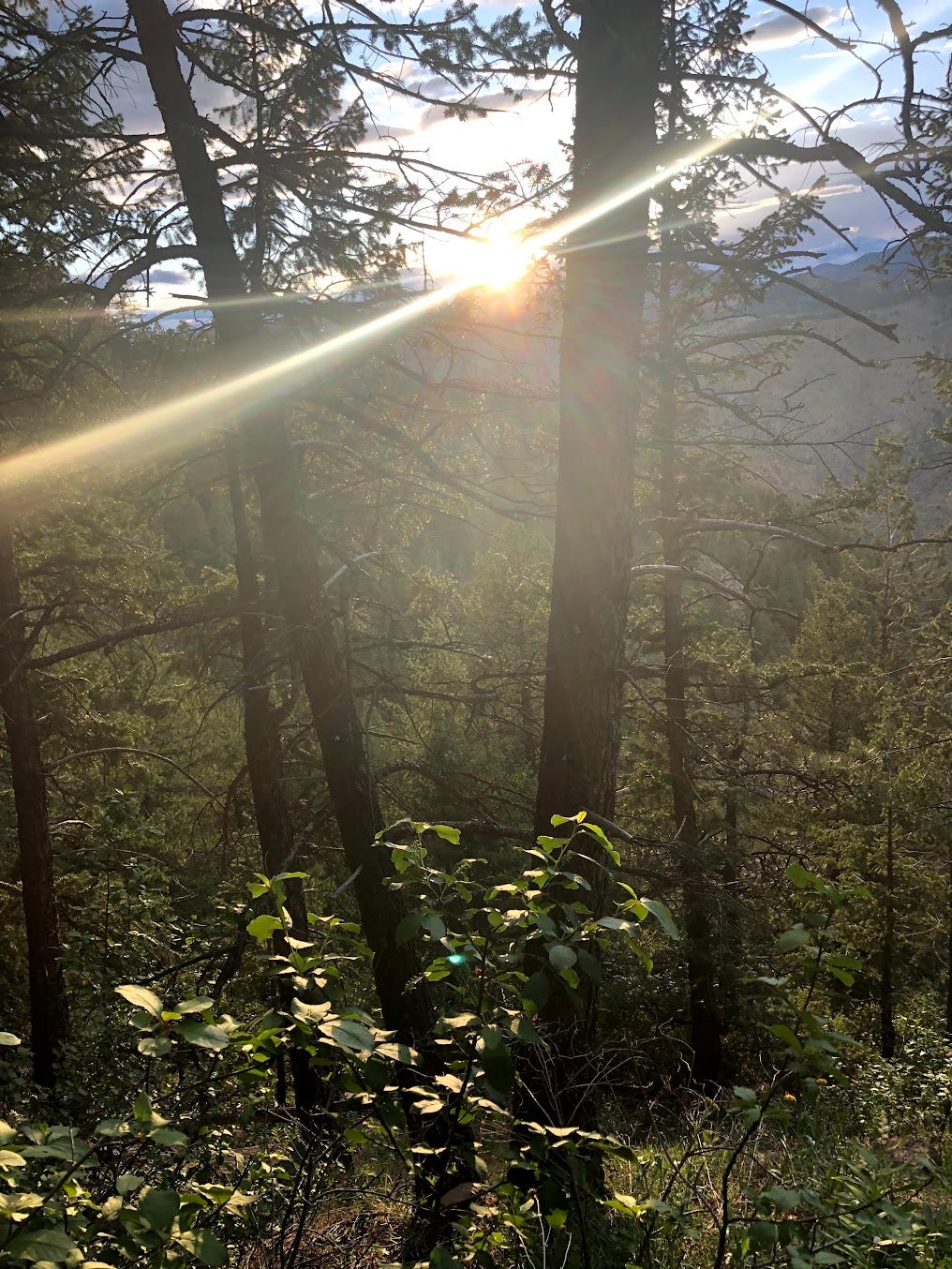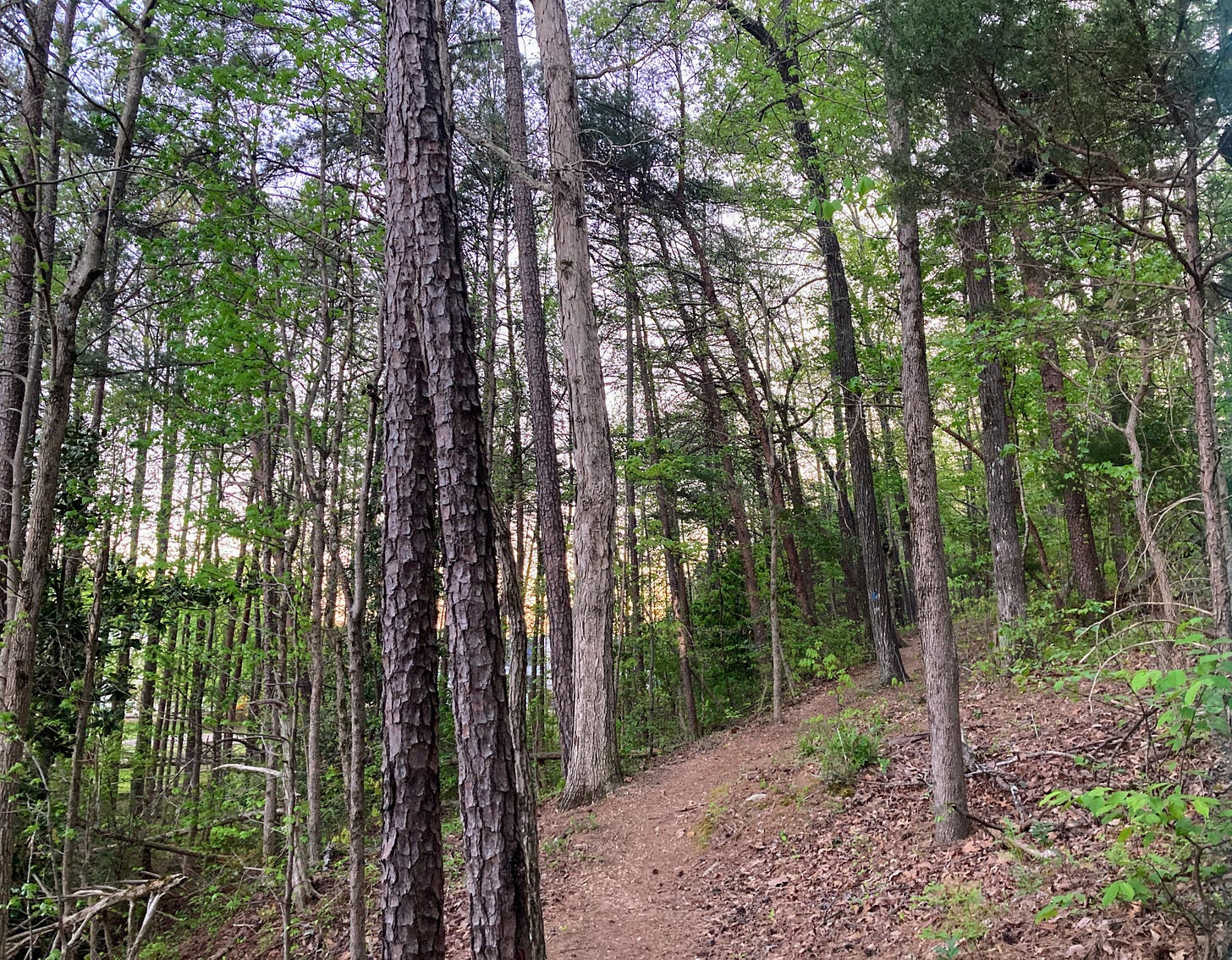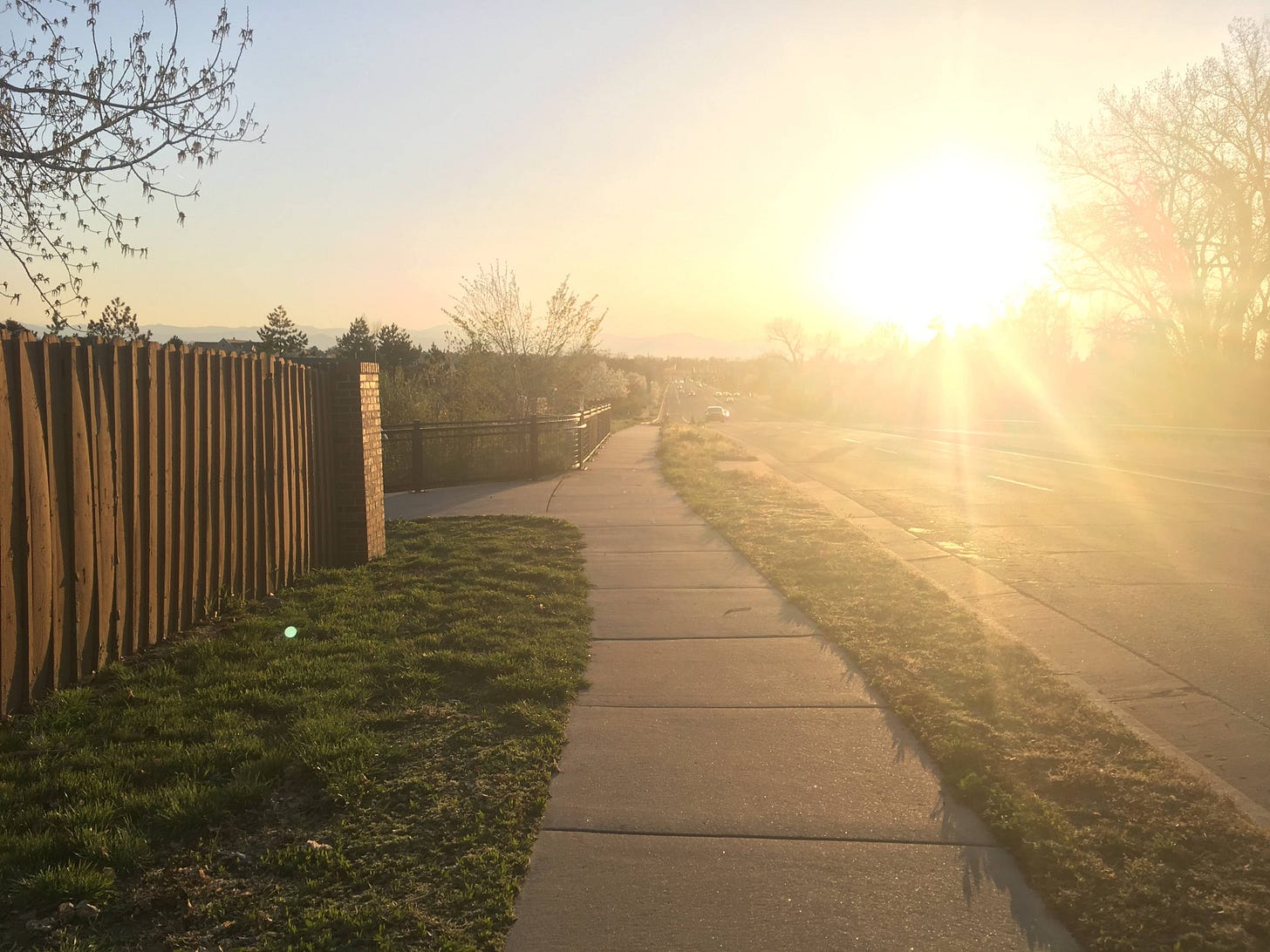Joy is a Season: Sadness and Whether I Believe in Magic Still
Joy is a season, not a lifestyle or achievement. It seasons itself in and out of our lives. On not being good at it, plus Tolstoy and Dostoevsky with the Prosaic vs the Sublime
(All photos mine)
Joy is a season, not a lifestyle or achievement. It seasons itself in and out of our lives: the moods the hours the days coming and going.
I’ve never been good at joy. I’m particularly talented at the ins and outs, nuances and shades of sadness. Especially after moving to a new state across the country in my mid-30s and losing all the community and friends I dearly loved.
It’s one of the existential questions of life: why does happiness ebb and flow so much? Can’t we stay satiated, rooted and grounded in happiness?
Joy, it turns out, isn’t steady, nor is it easy. It has to be unearthed, uprooted out of the ground, brushed off, and tended to. Even then, once it has sprouted in the hard ground of reality that you’ve tilled and turned over to make ready for its growth, there will be times of year it dies. Withering away with a seemingly nihilistic commitment to no longer exist. It bends low to the earth and sinks below it to hide again, but the roots don’t change. They are still there, clinging fiercely to the earth of existence, the loam of the heart.
Existence is hard. Kate C Bowler (author of Have a Beautiful, Terrible Day! and cancer survivor) writes and talks with such gleaming, specific truth about how life is terrible and life is beautiful, both so intensely so, so much than we are willing to say or imagine or comprehend. I stumblingly imagine that life could be impossiblly beautiful - but I know, with a deep knowing, that it is very hard. I’ve barely suffered in my life with any tangible suffering at all - but like so many in this odd, changing, season of the world we’re in, isolation and loneliness from human connection, and an inexplicable current of depression, haunt me and dwell in my body and bones.
I’d like to believe that life is imminently beautiful. Like the man in Mark 9, “I want to believe - help me believe it again.” For I did believe it once. I am not someone unacquainted with magic. From my teens to my mid-twenties the world was alive with possibility. I lived alight with surety of all the fulfilled dreams that would come tripping steadily into the story of my life, to be greeted with delight as long-expected friends. The immense possibility and adventure of the future made me believe in Narnia. In the call of magic, both in this life and in the other worlds just beyond the door. So in California, and South Korea, and other places, in the ups and downs of life I often had a sense of magic.
Only then. By my late twenties the story had begun to falter, and now, at my mid-thirties, it’s become abundantly clear that none of the dreams and plans I had as a girl have come true or are likely to. This is not to say nothing has happened - I’ve lived, falteringly, stumblingly, but lived - a lot of life in the last decade.
But. What to do in the face of the factual reality that none of my dreams have come true? That life is infinitely more limited than I thought?
It’s time, O my soul, to revisit the concept of joy. To view it as cobblestones to unearth in the dank dense cobblestones of my heart. Unexceptionable-looking tubers to be found out, uprooted and firmly, against their protestations, planted in fallow ground. Coaxed into growth, waited on, very long, with patience, for growth.
My imagination of what joy is is slowly changing, molding to wrap around a new structure of the mind. My pastor told me a few months ago that Dostoevsky and Tolstoy (he knows I love Russian novels) had very different life aesthetics. Dostoevsky believed that life is primarily composed of the sublime: big moments of achievement or internal realization, moments of life-changing significance (Crime and Punishment, which I’ve been slowly reading, is definitely about a moment of life-changing signifiance, but that’s another story :). Tolstoy, on the other hand, was more of a realist, and believed that the center of life and what it’s primarily made up on of is the prosaic - small everyday moments of significance.
My life approach is a probably chaotic amalgamation of these two views in that I have always expected so much of life, so in that sense I am an intense idealist, a dreamer to the core. Yet, being raised as a missionary kid in a decidedly unglamorous third-world environment gave me in some ways a balance, such that most of my life decisions have been hopelessly pragmatic and much closer perhaps to a Tolstoy-ian vision. I do not think that maintaining these two different visions of what life is - the artistic vs the pragmatic, the idealism vs the practical - has served me particularly well. But God makes us who we are, and I take a sort of grim amusement in the collision of the two.
What I am striving for in my 30s is to reverse these two belief systems in their application to my personal life. To work to make decisions - the big life moments - that are idealistic instead of practical. That serve to move me more towards the artistic, dreamer side of myself that has been firmly squelched for the last decade. To make alive again that which God had woven from my earliest days into the fabric of my being - the love of art, beauty, poetry, words. The desire to create, to be a maker of magic and meaning (granted that all meaning we put out is a tiny reflective flame of the meaning in Christ’s being).
As I prioritize the sublime over the practical in big life decisions, I have begun striving on the other hand to forget the sublime and look for the prosaic, the wonder of the ordinary in my daily life. To work hard to believe and to see life as a canvas of small, ordinary moments of immense significance. To believe that my entirely ordinary life has meaning, is the clear path to joy. And Paul says it can be learned - contentment. “I have learned to be content in all circumstances”, Philippians 4:11. It is clearly, a way of walking with God and in light of God’s character that refuses to bow the knee to circumstance, but has learned, achingly and grindingly over much time and sorrow, to stand steadfast in joy anyway.
I’m not a creature of steady faith, or even habit. But I am a person of rhythms and patterns and ways of doing things. And I’ve always followed God. So, I believe it’s possible to have seasons of joy, with or without Paul’s exceptional gift of faith. I believe that in learning moments of immense delight, I can reduce the impossibility of living that Alan Noble writes so well about it in On Getting Out of Bed: The Burden and Gift of Living. That it’s possible to stay more grounded in the moment and alive to the present blessing.
So. Here’s a brief list of things I’m grateful for and alive to the wonder of today, as I sit at a coffeeshop writing:
Latticeworked windows. Wendell Berry. Cool spring breezes. Engagement season and J. Knowing that people love me even if they’re hundreds of miles across the country. That Scotland exists despite never having been there. Novo Amor the band. And faithful pastors.
Joy can be tended. May you find ways to tend it today.
-Claire
P.S. If you liked this post, you might also enjoy On Happiness and Unhappiness







